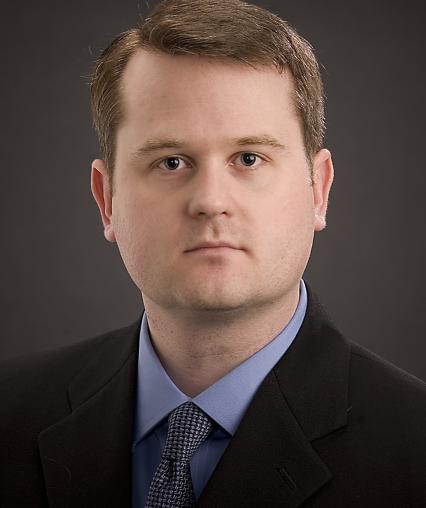
Dr. Ryan Jones
Contact Information
Biography
Ryan Jones is Professor of Music in the Department of Music and Theatre Arts at UW-Eau Claire where he teaches courses in the history of Western art music, world music, and popular music. He received a B.A. in English from the University of Richmond and holds a Ph.D. and an M.F.A. in Musicology from Brandeis University. Before joining the UW-Eau Claire faculty, Dr. Jones taught at Brandeis and Gettysburg College.
Dr. Jones’s musicological interests range from American art and film music to jazz and rock. His dissertation presented the first extensive study of Aaron Copland's only full-length opera, The Tender Land (1954), outlining the potential the composer's final populist work holds both for understanding his aesthetic values and locating their place within American music history. His research has also investigated issues of authenticity in George Gershwin's Porgy and Bess, traced the educational arc of Julian “Cannonball” Adderley's early training and career in music (Current Musicology, 2006), and examined the challenges of Stan Kenton's early Artistry in Rhythm Orchestra as its leader eschewed dance music from the receding swing era to embrace concert presentations of jazz (Jazz Research Journal, 2008). “‘Catch as Catch Can’: Jazz, John Williams, & Popular Music Allusion” in John Williams: Music for Films, Television, and the Concert Stage (Brepols, 2018) explores Williams’s varied use of popular music elements within his film and television scores. His chapter in Cinema Changes: Incorporations of Jazz in the Film Soundtrack (Brepols 2019), “Dignity in the Twilight of Minstrelsy—Race, Nuance, & Aspiration in Duke Ellington’s Symphony in Black: A Rhapsody of Negro Life," considers issues of minstrelsy in Ellington’s cinematic portrayals of race. Dr. Jones is author of the Instructor's Manual accompanying both Jazz: Essential Listening (W.W. Norton, 2019) and the second edition of its parent text, Jazz, by Scott DeVeaux and Gary Giddins. He is also a contributor to the second edition of the Grove Dictionary of American Music (Oxford University Press).
Additional projects concern the life and music of singer Jo Stafford, social activism in the music of Stevie Wonder, formative stylistic influences upon The Police, and the inventive approaches of Sun Ra. Dr. Jones has shared his work at meetings of the American Musicological Society, the Annual Leeds International Jazz Conference, and the Centro Studi Opera Omnia Luigi Boccherini.
Education
- • Ph.D., M.F.A., Brandeis University (Musicology)
• B.A., University of Richmond (English)
Teaching and Research Interests
- IDIS 174 Social Justice in Music
- MUSI 404 Music History Seminar
- MUSI 338 Jazz History and Analysis
- MUSI 305 Analyzing Global Traditions in Music
- MUSI 229 Music History and Society II (1750-1950)
- MUSI 227 Music History and Society I (Antiquity to 1750)
- MUSI 225 Global Traditions in Music
- MUSI 114 Evolution of Jazz
- MUSI 112 History of Rock and Pop
- MUSI 103 Introduction to Electric Guitar
Published Research
Selected Publications:
“‘I Just Came to Hang with You Guys’: Storytelling with the Storied Jimmy Heath” (in progress)
“Dignity in the Twilight of Minstrelsy—Race, Nuance, & Aspiration in Duke Ellington’s Symphony in Black: A Rhapsody of Negro Life” in Cinema Changes: Incorporations of Jazz in the Film Soundtrack, eds. Emile Wennekes and Emilio Audissino. Los Angeles, CA: Brepols Publishers (2019).
Instructor’s Manual for Jazz: Essential Listening (second edition) by Scott DeVeaux and Garry Giddins. New York: W.W. Norton (2019).
“‘Catch as Catch Can’: Jazz, John Williams, & Popular Music Allusion” in John Williams: Music for Films, Television, and the Concert Stage, ed. Emilio Audissino. Los Angeles, CA: Brepols Publishers (2018).
Instructor’s Manual for Jazz, (second edition) by Scott DeVeaux and Garry Giddins. New York: W.W. Norton (2015).
“Wardell Gray,” “Woody Herman,” “Stan Kenton,” “Progressive Jazz,” “Shorty Rogers,” “Sonny Rollins,” “Sonny Stitt,” “West Coast Jazz” in Grove Dictionary of American Music, second edition. New York: Oxford University Press (2014).
“Copland on Wilder: Scoring Existential Theatre in Early American Film” in Speculum Musicae: From Stage to Screen: Musical Films in Europe and the United States (1927–1961), vol. xix, ed. Massimiliano Sala. Washington, D.C.: Brepols Publishers, 143-155 (2012).
“‘Free Swing’ and the Emergent Neophonic: Forging Progressive Jazz with Stan Kenton in the 1947 Dance Hall,” Jazz Research Journal 2, no. 1 (May 2008): 29-54.
“‘You know what I mean?’ The Pedagogical Canon of ‘Cannonball’ Adderley,” Current Musicology, nos. 79 & 80, 40th Anniversary Special Issue (2006): 169-205.